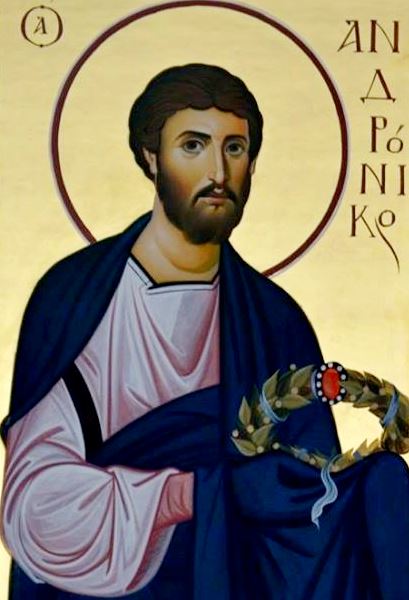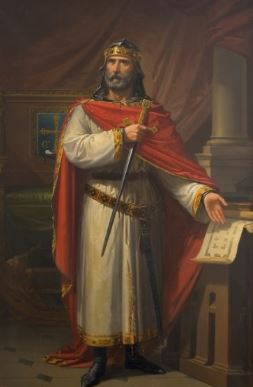The name Andronicus has been borne by several significant historical figures, particularly in the realms of literature, philosophy, and Byzantine history. While the name can refer to multiple individuals, the most notable ones include Livius Andronicus, a pioneering figure in Roman literature, and several Byzantine emperors such as Andronicus I Comnenus and Andronicus II Palaiologos.
In this article, we’ll explore the lives and contributions of the most prominent figures named Andronicus, focusing on their individual achievements and lasting influence on their respective fields.
Livius Andronicus: The Father of Roman Literature
Livius Andronicus (c. 284 – c. 204 BCE) was a Greek-born Roman dramatist and poet who is often credited with introducing Greek literature to Rome. As a former slave who gained his freedom, Andronicus became one of the earliest Latin-language authors, laying the foundation for what would become Roman literature.
Early Life and Background
Livius Andronicus was originally from Tarentum (modern-day Taranto in southern Italy), a Greek colony in Magna Graecia. He was brought to Rome as a slave, likely as a result of Roman conquests in southern Italy. While in Rome, he was educated in Greek and Latin literature, eventually earning his freedom and becoming a teacher and poet.
Contributions to Roman Literature
Livius Andronicus is best known for his translation of Homer’s “Odyssey” into Latin, marking the first major work of Greek literature to be adapted for a Roman audience. His translation, written in Saturnian verse, played a crucial role in the development of Roman poetic tradition.
In addition to his translation of the “Odyssey,” Andronicus wrote several dramas, including both tragedies and comedies, that were performed during Roman festivals. Though much of his work has been lost, he is regarded as the father of Roman drama and the first major Latin poet.
Legacy
Livius Andronicus’ contributions to Roman literature cannot be overstated. By adapting Greek literary forms for Roman audiences, he set the stage for future poets like Ennius, Plautus, and Terence, and helped to create a distinctly Roman literary culture. His efforts to bridge the cultural gap between Greece and Rome influenced the future of Roman education, as Greek literature became a key component of the Roman curriculum.
Andronicus I Comnenus: The Byzantine Emperor
Andronicus I Comnenus (c. 1118 – 1185 CE) was a Byzantine emperor who reigned from 1183 to 1185 CE. His brief and tumultuous reign is remembered for both his attempts at reforming the empire and his ruthless tactics to maintain power.
Early Life and Rise to Power
Andronicus I was a member of the powerful Comnenus dynasty and a relative of Emperor Manuel I Comnenus. He spent much of his early life in exile or on military campaigns, during which he gained a reputation for his charisma, intelligence, and military skill. However, his ambition and frequent rebellions against imperial authority made him a controversial figure within the Byzantine court.
Following the death of Manuel I in 1180, the Byzantine Empire was left under the rule of Manuel’s young son, Alexius II, with his mother serving as regent. Andronicus, seeking to take control, returned to Constantinople in 1182 and orchestrated a coup, eventually seizing the throne by 1183 after having Alexius II and his mother killed.
Reign as Emperor
Andronicus I’s reign was marked by significant reforms aimed at curbing corruption and strengthening the empire. He attempted to rein in the power of the aristocracy, reduce the influence of wealthy landowners, and restore the integrity of the Byzantine administration. These reforms, however, made him many enemies among the powerful elites.
His reign is also infamous for his brutal methods of dealing with opposition. Andronicus was known for his cruelty toward perceived rivals, often employing torture and executions to eliminate threats to his power.
Downfall and Death
By 1185, Andronicus I faced growing unrest from both the nobility and the general population. His harsh policies and oppressive rule led to widespread discontent, and a rebellion broke out in Constantinople. Isaac II Angelos emerged as the leader of the revolt and, with the help of the people, overthrew Andronicus I.
Andronicus was captured and subjected to public torture before being executed by an angry mob. His downfall marked the end of the Comnenus dynasty, and his brutal reign left a lasting scar on the Byzantine Empire.
Andronicus II Palaiologos: The Byzantine Emperor of Decline
Andronicus II Palaiologos (1259 – 1332 CE) was another Byzantine emperor who reigned from 1282 to 1328 CE. His reign was marked by the continued decline of the Byzantine Empire, largely due to financial struggles, military setbacks, and internal strife.
Early Life and Ascension
Andronicus II was the son of Michael VIII Palaiologos, the emperor who had successfully recaptured Constantinople from the Latin Empire in 1261. When Andronicus II ascended the throne in 1282, he inherited an empire that was struggling with both internal and external challenges.
Reign and Challenges
Andronicus II’s reign saw a series of military, economic, and political crises. To save money, he dismantled the Byzantine navy, which left the empire vulnerable to attacks from the Venetians and Genoese. The Ottoman Turks began to threaten Byzantine territories in Asia Minor, further diminishing the empire’s power and influence.
Additionally, his reign was marked by civil wars and disputes over succession, including a conflict with his grandson, Andronicus III, who would eventually force him to abdicate in 1328.
Legacy
Andronicus II’s reign is generally seen as a period of decline for the Byzantine Empire. Despite efforts to reform the economy and administration, his decisions, such as dismantling the navy, contributed to the empire’s weakening and left it vulnerable to external threats. The Byzantines continued to lose territory during his rule, and the empire’s internal stability deteriorated, paving the way for further decline in the years following his abdication.
Other Figures Named Andronicus
In addition to Livius Andronicus and the Byzantine emperors, other notable individuals named Andronicus include:
- Andronicus of Rhodes (1st century BCE), a philosopher and editor of Aristotle’s works. He is credited with preserving and organizing Aristotle’s writings, ensuring their transmission to future generations.
- Andronicus of Cyrrhus, an architect who built the Tower of the Winds in Athens, a famous ancient timekeeping structure.
The name Andronicus has been carried by individuals who played significant roles in history, from the pioneers of Roman literature to the emperors of Byzantium. Each of these figures left their mark in different ways—whether through the establishment of literary tradition, the administration of a vast empire, or the reform of intellectual thought. Though their lives and actions varied greatly, the legacy of the name Andronicus spans cultures, fields, and centuries, leaving a lasting impact on the history of the ancient world.




